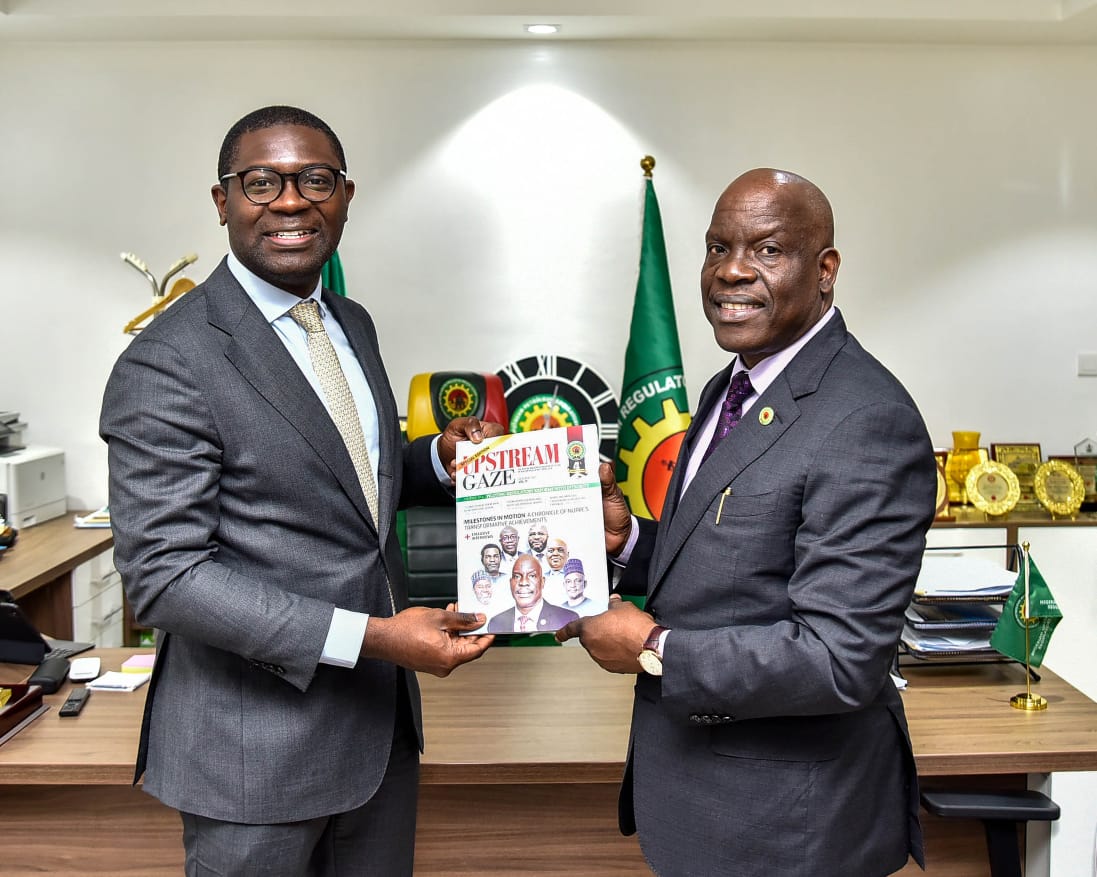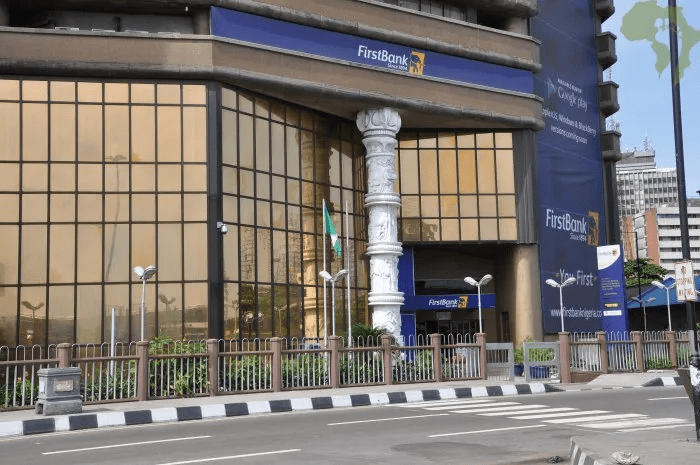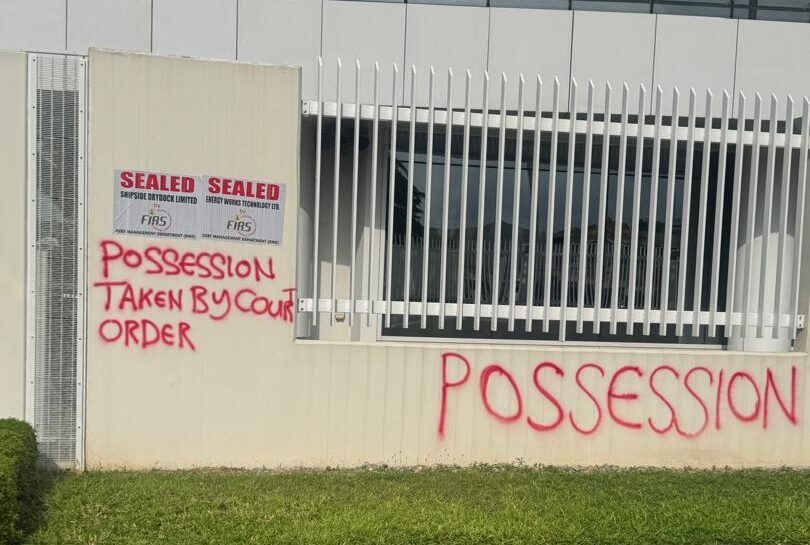FG Appeals to ASUU To Shelve Planned Strike, Vows to Address Pending Demands
FG Appeals to ASUU To Shelve Planned Strike, Vows to Address Pending Demands
Kuni Tyessi in Abuja
As a result of the threat of industrial action by the Academic Staff Union of Universities (ASUU), the Federal Government has assured the union of its commitment to addressing all outstanding demands raised by the lecturers.
It said unlike in the past where separate committees handled negotiations for universities, polytechnics and colleges of education, the government has now adopted a unified approach to ensure efficiency and coherence in the process.
The Minister of Education, Dr. Tunji Alausa, made the plea in Abuja on Wednesday while briefing journalists on the progress of ongoing negotiations between the Federal Government and the university-based unions.
Alausa disclosed that the Mahmud Yayale Ahmed Federal Government Tertiary Institutions Expanded Negotiation Committee has been reconstituted and inaugurated to fast-track talks with both academic and non-academic unions in universities, polytechnics and colleges of education.
According to him, “We are finalising the components of the condition of service that ASUU has proposed. Our counterpart committee is also working to conclude its response and hopefully by the end of today or tomorrow, the Mahmud Yayale Ahmed Committee will present the Federal Government’s counter-offer to ASUU.”
He explained that President Bola Tinubu has given clear directives that all efforts must be made to avoid another disruption in the nation’s tertiary institutions.
“The president has mandated us to do everything humanly possible to avoid strike. People at the highest level of government have been working several hours behind the scenes to come up with a robust but affordable response to the union’s demands. These issues have dragged on for over 10 to 15 years, but this administration is determined to resolve them once and for all,” he said.
“In the past, we had three different committees working; one for universities; one for polytechnics, and one for colleges of education,” he explained. “But that was not an efficient way to negotiate. Now, we have one expanded negotiating committee that engages all tertiary institutions and all unions, both academic and non-academic, to ensure a holistic understanding of their needs.”
According to Alausa, about 80 per cent of the union’s requests are similar across the tertiary subsectors, while the remaining 20 per cent relate to peculiar career and institutional needs.
“We have seen all the requests, and we understand their peculiarities. The new committee has started work already and will continue to engage the unions expeditiously to reach a mutually beneficial agreement,” he said.
The minister also urged ASUU and other unions to embrace dialogue as a first option rather than resorting to industrial action.
“We know you have been patient, but please don’t use strike as your first resort. These are issues that have lingered for decades. President Tinubu has shown genuine political will and benevolence towards education. We will resolve this matter comprehensively, respectfully, and in a way the government can afford.”
Alausa highlighted several steps already taken by the government to demonstrate its commitment, including the release of N50 billion for earned academic allowances and the provision of N150 billion in the 2025 budget for the revitalisation of tertiary institutions.
“The president has kept his promises. We have addressed promotional arrears, and the issues of wage awards and allowances have been resolved. By next year, all arrears will be fully cleared, including the 2025 wage award. The government is sincere and committed,” he added.
He assured the union that discussions on the new conditions of service would soon be concluded, noting that this was the final component of the ongoing negotiation process.
“We have resolved most of the concerns raised by the unions, and we are now at the final stage — the conditions of service. We are pleading for patience. The government is truthful and genuinely interested in resolving this crisis once and for all,” he said.
Kuni Tyessi in Abuja As a result of the threat of industrial action by the Academic Staff Union of Universities (ASUU), the Federal Government has assured the union of its
Alleged killing of Christians: Nigerian Reps reject US Senator’s claims
The Nigerian House Representative has rejected the narrative by the US Senate that frames Nigeria’s security crisis as ‘genocide against Christians’ or state-sponsored persecution. In a motion presented by Deputy Speaker Benjamin Kalu, and supported by all members of the House of Representatives, the narrative put forth by the US Senate was strongly refuted. The
Alleged killing of Christians: Nigerian Reps reject US Senator’s claims
The Nigerian House Representative has rejected the narrative by the US Senate that frames Nigeria’s security crisis as ‘genocide against Christians’ or state-sponsored persecution.
In a motion presented by Deputy Speaker Benjamin Kalu, and supported by all members of the House of Representatives, the narrative put forth by the US Senate was strongly refuted.
The motion called on relevant committees to, within 21 days, work in coordination with the Minister of Foreign Affairs, the Nigerian Embassy in Washington DC, and all pertinent security agencies to submit a formal diplomatic protest to the sponsors of the bill against Nigeria.
The House Leader, Julius Ihonvbere, added that Nigeria has grown beyond issues of religion.
“The main problem here comes from those who deliberately demarket Nigeria outside the country, including Nigerians,” he said.
“There is an agenda designed to rubbish some of the progress we have made so far.”
Alleged killing of Christians: Nigerian Reps reject US Senator’s claims
Cocoa investors sustain dumping spree as the commodity crashes 50% year-to-date
Global cocoa prices, as tracked by cocoa cash contracts, have plunged more than 50% year-to-date, extending a wave of selling pressure that has been building steadily since early 2025. The post Cocoa investors sustain dumping spree as the commodity crashes 50% year-to-date appeared first on Nairametrics.
ANALYSIS: Sudan’s civil war reignites illicit car trade into Chad
Numerous actors are involved in this surging criminal enterprise, with members of the rebel Rapid Support Forces becoming key players. The post ANALYSIS: Sudan’s civil war reignites illicit car trade into Chad appeared first on Premium Times Nigeria.
Why NDLEA opposes local use of cannabis oil, okays regulated export – Marwa
Chairman/Chief Executive Officer of the National Drug Law Enforcement Agency has said that the NDLEA is not averse to the controlled and regulated export of cannabis oil to countries who desire it but remains opposed to its local consumption. Speaking at a stakeholders workshop themed, ‘Cannabis Oil Debate: The Path Forward for Nigeria’, organized by
Why NDLEA opposes local use of cannabis oil, okays regulated export – Marwa
Chairman/Chief Executive Officer of the National Drug Law Enforcement Agency has said that the NDLEA is not averse to the controlled and regulated export of cannabis oil to countries who desire it but remains opposed to its local consumption.
Speaking at a stakeholders workshop themed, ‘Cannabis Oil Debate: The Path Forward for Nigeria’, organized by the Nigerian Academy of Science in Abuja on Wednesday, Marwa said the dialogue on cannabis oil is a welcome development.
This was made known in a statement by Femi Babafemi, Director, Media & Advocacy, NDLEA Headquarters, Abuja.
“At NDLEA, our position on cannabis oil is simple: we welcome dialogue. We believe Nigeria must make informed choices, not choices driven by half-truths, commercial interests, or global trends. Cannabis oil may have medicinal properties worth investigating, but it also carries health risks, potential for misuse, and implications for public safety.
“This is why it is crucial that scientists, medical experts, policymakers, and regulators are in the same room to bring facts to the table, scrutinise evidence, and weigh options carefully.
“Let me assure you that NDLEA is not opposed to science, nor are we indifferent to innovation. What we insist on is caution. Policy must protect lives, safeguard public health, and strengthen—not weaken—our fight against drug abuse.
*As such, the Agency will not be averse to the idea of controlled export of cannabis oil to foreign companies and countries who desire it, as part of our drive as a country to enhance foreign earnings. After all, some countries have approved the use of cannabis oil for therapeutic purposes while others including Nigeria have not.
“Our concern however is about its consumption in Nigeria. In essence, we are not opposed to the idea of exporting the oil to those who desire it but such must be strictly controlled, licensed and monitored by NDLEA with such process located only within export free zones”, he stated.
Explaining the position of the Agency, the NDLEA boss said the conversation is necessary because “we are talking about Cannabis, which is not just another plant. It is a substance with complex medical, social, and economic dimensions.
“For decades, the debate has been one-sided. Advocates often highlight the supposed benefits of cannabis oil, while its risks and consequences are glossed over. This, no doubt informs the decision by us at the NDLEA to commission an ongoing study on cannabis oil by this respected apex body of scientists, the Nigerian Academy of Science.”
“In a country like Nigeria, which is already contending with a high burden of drug abuse, it is imperative that we approach this matter with sobriety, clarity, and balance. Till today, much of the public debate highlights the potential therapeutic uses of cannabis oil and the commercial value of its export. What about the risks? Evidence shows that cannabis, including its oil extracts, can have adverse effects on mental health, especially among young people.
“The prolonged or uncontrolled use of cannabis and its extracts is linked to anxiety, depression, psychosis, and cognitive impairment. In addition, dependence and addiction are real concerns as well. In reality, these side effects create additional social and economic costs for families, communities and society at large.
“Another fundamental issue that we must take cognisance of is that the lack of standardised production and regulation in many countries means products sold as “cannabis oil” often vary in potency, contain contaminants, or are misused outside of medical supervision. Already, Nigeria has one of the highest rates of misuse of cannabis worldwide.
“For a country already grappling with 14.4 percent substance abuse prevalence rate as against the global average of 5.6 percent and a staggering figure of 10.6 million cannabis users based on the last drug use survey report of 2018, the risks associated with cannabis cannot be dismissed.
“Rather, the reality should remind us that while cannabis oil may have medical potential, its dangers are real and must be addressed with strong safeguards before any policy shift is considered.”
He said as part of efforts to mitigate the consequences of illicit drug cultivation and production is the decision by the Agency, as the first in Africa, to introduce alternative development project in 2023.
“The Alternative Development Project demands ethical responsibility and commitment to develop transformative policies and humanitarian responses to mitigate drug-related problems and end the complexities and violence of the war on drugs in Nigeria and globally.
“In Nigeria, the Alternative Development Project will focus on reducing the vulnerabilities of ignorance, poverty, hunger, unemployment and underdevelopment that push people into illicit economies, particularly illicit drug cultivation.
“Aside from its link to transnational organised crime, illicit drug cultivation fuels national organised crime that causes agricultural states to abandon food crop cultivation for cannabis plantations in some communities across Nigeria.
“We intend to reduce these vulnerabilities both in urban centres and rural areas through the provision of functional mechanisms and facilities for sensitisation, skills acquisition, empowerment and positive engagements for sustainable livelihoods.”
In his welcome remark, President of the Nigerian Academy of Science, Prof Abubakar Sambo, who was represented by the Vice President of NAS, Prof Friday Okonofua, noted that several research studies have considered various uses of cannabis and its side effects.
He said the workshop was aimed at reaching a consensus on the contentious issue of the use of cannabis oil.
“At the end of the day, we’ll have evidence-based consensus work, which will be properly documented that will lead us to decide what we should be doing regarding the use of cannabis in this country,” he stated.
Chairman of NAS study committee on cannabis oil use, Prof Musbau Akanbi commended NDLEA for being proactive and working with the Academy to obtain science driven guide for Nigeria. “As we all know, cannabis oil is extracted from cannabis and the legalisation of the use of the oil would translate to large-scale cultivation of the weed itself.
The Nigerian Academy of Science consequently constituted the consensus study committee on cannabis oil debate, comprising experts in all fields that had to do with the study request.
The committee collected a lot of literature on the subject matter from all over the world, reviewed what is happening in other lands, and decided to arrange this workshop where experts from various related fields will come together with stakeholders and present evidence that will be collated to assist NDLEA in carrying out its honest responsibility.”
In his keynote address, Prof. Oye Gureje, Director, WHO Collaborating Centre for Research and Training in Mental Health, Neurosciences, and Substance Abuse, University of Ibadan, stated that cumulative evidence suggests that “cannabis has some limited medical use”, and “widespread recreational use is likely to lead to increased risk of psychosis”, while “public health may be moderately affected by increased use.”
Why NDLEA opposes local use of cannabis oil, okays regulated export – Marwa
Emerging Africa Asset Management earns A-(IM) rating from Agusto & Co.
Agusto & Co., Nigeria’s foremost rating agency, has upgraded Emerging Africa Asset Management Limited (EAAML),to an A-(IM) rating, affirming its excellence in investment management, governance, and risk oversight. The post Emerging Africa Asset Management earns A-(IM) rating from Agusto & Co. appeared first on Nairametrics.
Champions League New Format Explained: Rules, Schedule, What To Expect
A new format has arrived, and the Champions League now unfolds as one panoramic league phase instead of tight little groups. The story reads across a single table, eight fixtures per club, and a clearer sense of progress. For viewers this means fewer dead ends, more variety in opponents, and a cleaner path from autumn […] The post Champions League New Format Explained: Rules, Schedule, What To Expect appeared first on Complete Sports.
Emir Sanusi reveals factors hampering Nigeria’s agricultural sector
The Emir of Kano, Lamido Sanusi, has identified policy somersaults as a clog in the wheel of Nigeria’s economic and agricultural development. Sanusi spoke during a joint session of the United Nations World Food Programme, WFP, and the African Development Bank, AfDB, organised on the sidelines of the Nigeria Economic Summit in Abuja. The session
Emir Sanusi reveals factors hampering Nigeria’s agricultural sector
The Emir of Kano, Lamido Sanusi, has identified policy somersaults as a clog in the wheel of Nigeria’s economic and agricultural development.
Sanusi spoke during a joint session of the United Nations World Food Programme, WFP, and the African Development Bank, AfDB, organised on the sidelines of the Nigeria Economic Summit in Abuja.
The session focused on ‘Investing in Innovative Food Systems Solutions in Challenging Contexts’.
“The biggest problem I have seen with our country is the lack of policy continuity. Every time you have an election, it is as if everybody starts on a clean slate
“A civil service that should preserve institutional memory has either by design or default failed to do so. So, every few years, we come back discussing the same issues,” he said.
The former governor of the Central Bank of Nigeria, CBN, recalled that during his tenure as CBN governor, he initiated a study of six agricultural value chains to improve lending and promote investments in local production.
“We discovered 13 tomato varieties suitable for paste production, but outdated laws blocked their commercialisation. We had to fight for policy amendments. Yet, before the reforms could mature, the project was abandoned.
“There is not enough money in the government to fix every farmer’s challenge. What the government can do is create confidence for private investment to thrive,” he added.
Emir Sanusi reveals factors hampering Nigeria’s agricultural sector
MASSOB issues warning against any plot to scuttle Anambra guber polls
The Movement for the Actualization of the Sovereign State Of Biafra, MASSOB, has declared total support for the conduct of the Anambra State governorship election in November. The pro-Biafra group spoke while warning against any plot to scuttle the governorship election. MASSOB said the warning was in view by a directive issued on social media
MASSOB issues warning against any plot to scuttle Anambra guber polls
The Movement for the Actualization of the Sovereign State Of Biafra, MASSOB, has declared total support for the conduct of the Anambra State governorship election in November.
The pro-Biafra group spoke while warning against any plot to scuttle the governorship election.
MASSOB said the warning was in view by a directive issued on social media by some disgruntled and sponsored persons residing in diaspora.
It accused the said individuals of “unleashing their personal minded narratives using the pro-Biafra activism to create political instability and chaos in Igbo land by trying to use the upcoming Anambra governorship election as a yardstick.”
This was contained in a statement made available to journalists on Wednesday, signed by Comrade Uchenna Madu, Leader of MASSOB.
The pro-Biafra group said, “MASSOB will never allow this deceit to scale through.
“Several times during elections in the south east, they always came up with this sympathetic deceit of sit-at-home, with claims that such futile exercise enhances Biafra actualization but MASSOB always countered and stopped them. This time they will fail.”
It warned anti pro-Biafra activists, “including those hiding in diaspora to stay clear of Biafra land now.”
MASSOB assured residents of Anambra State that the November 8, governorship election in “must hold because we have gone a long way underground mobilizing and sensitizing the state residents including members of pro Biafra groups to engage in the upcoming governorship election.
“MASSOB members and other pro Biafra groups are coming out to participate in the election with our massive support to the competent and credible candidate that is full of Igbo blood.
“MASSOB also encourages the Independent National Electoral Commission, INEC, to go ahead without distraction in conducting the governorship election
“That having studied the political, economical, religious and social implications of not having a credible election in Anambra State and the political instability and chaos that may erupt, we insist that the Anambra State governorship election must be peaceful and credible
“MASSOB advises the people of Anambra State and other residents in the state to exercise their fundamental and constitutional rights of choosing their next governor because Anambra political space will never be in vacuum.
“That MASSOB position on Anambra governorship election is for the interest of Ndigbo, we can never allow or give unfortunate legal room for outsiders to dictate our political and economic future.
“That MASSOB position does not mean derailment of the Biafra self-determination for actualization and restoration.
“We must always consider the overall interest of Ndigbo first before a group or individual interest,” the statement concluded.
MASSOB issues warning against any plot to scuttle Anambra guber polls
Nigerian Govt begins final phase of negotiations with ASUU
The Federal Government has begun the final phase of negotiations with the Academic Staff Union of Universities, ASUU, and other tertiary education unions. The Minister of Education, Tunji Alausa, made this revelation on Wednesday in Abuja during a meeting of the Technical Working Group on Conditions of Service of ASUU. Alausa said that outstanding issues
Nigerian Govt begins final phase of negotiations with ASUU
The Federal Government has begun the final phase of negotiations with the Academic Staff Union of Universities, ASUU, and other tertiary education unions.
The Minister of Education, Tunji Alausa, made this revelation on Wednesday in Abuja during a meeting of the Technical Working Group on Conditions of Service of ASUU.
Alausa said that outstanding issues would soon be resolved to prevent further industrial action, adding that the group was finalising a counter-offer to be presented to the unions through the Allied General United Federal Government Tertiary Institutions Negotiations Committee.
The minister stressed that the committee’s work aligns with President Bola Tinubu’s directive that all efforts must be made to keep Nigerian students in school and avoid disruptions to the academic calendar.
“The President has made it clear that our children must remain in school. The technical working group is working to finalise a component of the condition of service that has to be proposed. They are working to finalise a counteroffer to them.
“Hopefully by the end of today, or latest tomorrow, the Allied General United Federal Government Tertiary Institutions Expected Negotiations Committee will receive that counteroffer to ASUU,” he said.
He added that this present administration had made significant progress already with the payment of the Earned Academic Allowance of N50 billion released by Tinubu.






